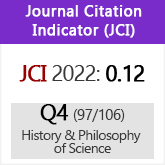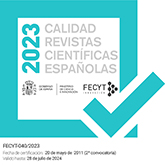The ortus of the contemporary medica! theory. General pathology in german romanticism
DOI:
https://doi.org/10.3989/asclepio.1993.v45.1.500Abstract
The Enlightenment, particularly in Germany —mainly through the influence of the critical philosophy— required from a Medicine that boasted of its scientifical stance, the elaboration of a general theory on the phenomenon of disease. That theory, that should fall within the realm of what would end up being named «General Pathology» was originally concocted by physicians possessing a considerable philosophical background, specially by those directly linked to Schelling's Naturphilosophie; such was the case of the authors studied in this work: Johan Christian Reil (1759-1813), Andreas Röschlaub (1768-1835) and Dietrich Georg Kieser (1779-1862). The subjects that were submitted to analysis were the concept, objective and methods of a General Pathology, its field of activities and its construction as a branch of Physiology, ultimately leading to the concepts of health and disease, essential to that discipline. Mention was likewise made of the speculative stance commonly attributed to this type of Medicine and of how, in the case of these authors, this was due, partially at least, to the technical limitations they had to put up with when unfolding and developing their theories into actual praxis.
Downloads
Download data is not yet available.
Downloads
Published
1993-06-30
How to Cite
Montiel, L. (1993). The ortus of the contemporary medica! theory. General pathology in german romanticism. Asclepio, 45(1), 249–268. https://doi.org/10.3989/asclepio.1993.v45.1.500
Issue
Section
Notes and essays
License
Copyright (c) 2020 Consejo Superior de Investigaciones Científicas (CSIC)

This work is licensed under a Creative Commons Attribution 4.0 International License.
© CSIC. Manuscripts published in both the printed and online versions of this Journal are the property of Consejo Superior de Investigaciones Científicas, and quoting this source is a requirement for any partial or full reproduction.All contents of this electronic edition, except where otherwise noted, are distributed under a “Creative Commons Attribution 4.0 International” (CC BY 4.0) License. You may read here the basic information and the legal text of the license. The indication of the CC BY 4.0 License must be expressly stated in this way when necessary.
Self-archiving in repositories, personal webpages or similar, of any version other than the published by the Editor, is not allowed.














